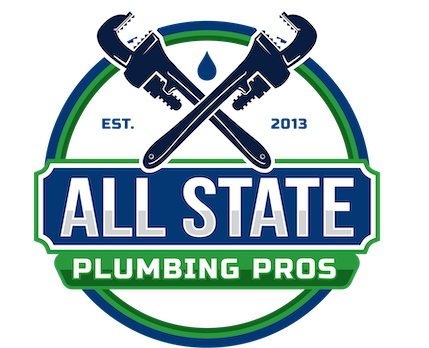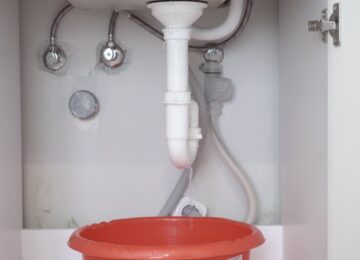A reliable supply of hot water is essential for any home, and it all depends on proper hot water heater plumbing. From the pipes that deliver cold water into your heater to the safety valves that protect against dangerous pressure buildup, every connection matters. When problems occur, whether it’s a leak, loss of hot water, or an installation mistake, homeowners in Fairfield County, CT, and Westchester County, NY need fast, professional service.
At All State Plumbing Pros, we specialize in water heater plumbing, offering emergency repairs, routine maintenance, and expert installation. With licensed plumbers available 24/7, we help families and businesses restore comfort quickly and keep their systems running safely.
Need emergency water heater plumbing in Fairfield County or Westchester? Call All State Plumbing Pros anytime; licensed experts are available 24/7.
What Is Hot Water Heater Plumbing?
Water heater plumbing is the system of pipes, valves, fittings, and safety features that connect your water heater to your home’s water supply and distribution lines. It ensures cold water enters the heater, hot water leaves safely, and excess pressure is managed correctly.
Key components of water heater plumbing include:
- Cold water supply line: Brings fresh water into the heater.
- Hot water outlet line: Distributes heated water throughout the home.
- Temperature and pressure (T&P) relief valve: Prevents dangerous pressure or temperature build-up.
- Expansion tank: Absorbs thermal expansion in closed systems.
- Shut-off valve: Allows the water supply to be safely stopped during repairs.
Because water heaters are tied into both plumbing and, in many cases, gas or electrical systems, professional installation ensures safety, efficiency, and compliance with Connecticut and New York codes.
Types of Hot Water Heaters and Their Plumbing Needs
Different water heater types come with different plumbing requirements. Choosing the right unit depends on your household needs, budget, and space.
- Tank Water Heaters: Store a set amount of hot water. Plumbing is straightforward but often requires an expansion tank in closed water systems.
- Tankless Water Heaters: Provide hot water on demand. Installation is more complex, requiring proper venting, a larger gas line, or upgraded electrical capacity.
- Hybrid/Heat Pump Heaters: Combine tank storage with heat pump technology. They need a condensate drain line in addition to traditional plumbing.
- Point-of-Use Heaters: Compact units designed for single fixtures, often requiring dedicated supply lines.
Comparison Table: Tank vs Tankless vs Hybrid
| Heater Type | Pros | Cons |
|---|---|---|
| Tank | Lower upfront cost, simple plumbing | Limited hot water supply, higher energy use |
| Tankless | Unlimited hot water, saves space | Higher installation cost, may require gas line upgrade |
| Hybrid | Efficient, storage backup | Requires more space, higher upfront cost |
Unsure which water heater fits your home in Danbury or New Milford? Our licensed plumbers can help you choose and install the right system.
Common Hot Water Heater Plumbing Issues
Even the best systems can develop problems over time. Some of the most common plumbing issues include:
- Leaks: These can come from fittings, valves, or even the tank itself.
- No hot water: Causes include a failed heating element, faulty gas control valve, dip tube problems, or well pump issues.
- Inconsistent temperature: Often due to sediment buildup or a malfunctioning thermostat.
- Low pressure or rusty water: Could signal corroded pipes, failing fittings, or internal tank issues.
- Gas and venting concerns: A poorly connected gas line or draft hood can lead to safety risks.
If you notice leaks or inconsistent hot water in Ridgefield or Wilton, call us before the issue causes costly damage.
Hot Water Heater Installation Basics
While many homeowners search for “DIY water heater installation,” the truth is that installing a new unit requires plumbing, electrical, and often gas expertise.
Basic Installation Steps:
- Shut off the water supply and power or gas line.
- Drain the old unit using a garden hose connected to the drain valve.
- Disconnect fittings and carefully remove the old heater.
- Position the new unit in an approved location with proper clearance.
- Connect cold and hot water lines using Teflon tape and dielectric unions.
- Install a shut-off valve and T&P relief valve with a discharge pipe.
- For gas units, connect the gas line and draft hood per the manufacturer’s instructions.
- For electric units, connect wiring at the access panel, ensuring correct voltage.
- Fill the tank, check for leaks, and relight the pilot or power the unit.
- Test temperature settings and ensure proper operation.
In Connecticut and New York, permits are often required for water heater replacements, and inspectors will check for safety features like relief valves, expansion tanks, and proper venting. Hiring a licensed plumber ensures your installation is done correctly, safely, and up to code.
Emergency Hot Water Heater Plumbing
When a water heater fails, time is critical. Leaks can cause flooding, and loss of hot water can disrupt daily routines.
If your water heater leaks:
- Shut off the cold water supply using the shut-off valve.
- Turn off the power (electric) or shut off the gas supply.
- Open a hot water faucet to relieve pressure.
- Call a licensed plumber for emergency repair.
All State Plumbing Pros offers true 24/7 emergency plumbing in Fairfield County, CT and Westchester County, NY. Last winter in Danbury, we restored heat for a family overnight by replacing a failed tank heater, preventing further damage and discomfort.
Maintenance Tips to Extend Water Heater Life
Routine maintenance helps maximize efficiency and extend the life of your water heater.
- Drain and flush the tank once a year to remove sediment.
- Test the T&P relief valve annually to ensure it works properly.
- Inspect the anode rod every 3–5 years to prevent tank corrosion.
- Check for thermal expansion and ensure that expansion tanks function.
- Keep the temperature setting at 120°F to save energy and reduce scalding risk.
Tank heaters typically last 8–12 years, while tankless models may last 15–20 years with proper care.
Schedule routine water heater maintenance with All State Plumbing Pros to avoid emergency breakdowns and extend the life of your unit.
Choosing Licensed Pros for Water Heater Plumbing in CT & NY
Water heater plumbing involves more than connecting pipes. It requires knowledge of local building codes, safe handling of gas and electricity, and attention to detail. Licensed plumbers bring all of this to every job.
All State Plumbing Pros offers:
- 24/7 emergency service.
- Licensed, insured, and continuously trained professionals.
- Clean, respectful work that treats your home like our own.
- Specialized expertise in both water heaters and well pumps, something many competitors overlook.
Conclusion
Proper water heater plumbing is essential for home comfort, safety, and efficiency. Whether you need a new installation, emergency repair, or routine maintenance, having a licensed professional ensures your system is installed correctly and built to last.
That said, if you’re dealing with leaks, no hot water, or aren’t sure if your heater needs replacement, it’s best to call in a licensed professional. At All State Plumbing Pros, we’re available 24/7 to help homeowners and businesses in Connecticut and New York restore safe, reliable hot water. Whether you need a fast repair, water heater installation, or a full inspection of your plumbing system,contact us today for dependable service you can trust.
FAQs
Is a water heater part of plumbing?
Yes. While a water heater involves heating elements or gas burners, the majority of its system is tied directly to plumbing. It connects cold water lines to deliver hot water through your home. For Fairfield and Westchester homeowners, it’s best serviced by licensed plumbers who understand both plumbing and safety requirements.
How do you plumb in a water heater?
Plumbing a water heater involves connecting the cold water inlet, hot water outlet, shut-off valve, and a properly installed T&P relief valve with a discharge pipe. Expansion tanks may be required in closed systems. To ensure the unit is installed correctly, a licensed plumber should handle the job.
Do you need a plumber to install a water heater?
Yes, in most cases. Professional installation ensures the heater is connected to water lines, gas or electricity, and safety valves properly. In Connecticut and New York, permits are often required, and only licensed plumbers can meet inspection standards.
What is water heater plumbing?
Water heater plumbing refers to the pipes, fittings, and safety components that connect your heater to the home’s water supply. It includes shut-off valves, discharge pipes, and expansion systems. Properly installed, it ensures reliable hot water and protects against leaks and pressure issues.

![Hot Water Heater Plumbing Basics for CT & NY Homes A reliable supply of hot water is essential for any home, and it all depends on proper hot water heater plumbing. From the pipes that deliver cold water into your heater to the safety valves that protect against dangerous pressure buildup, every connection matters. When problems occur, whether it’s a leak, loss of hot water, […]](https://allstateplumbingct.com/wp-content/uploads/2025/09/hot-water-heater-plumbing-750x420.jpg)



Leave a Reply